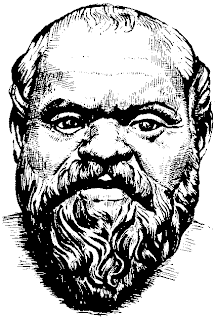

Harland David Sanders, better known as Colonel Sanders (September 9, 1890 – December 16, 1980) was an American entrepreneur who founded Kentucky Fried Chicken (KFC). His image is omnipresent in the chain's advertising and packaging, and his name is sometimes used as a synonym for the KFC product or restaurant itself.
Sanders was born to a Presbyterian family in Henryville, Indiana. His father, Wilbur David Sanders, died when Harland was five years old, and—since his mother worked—he was required to cook for his family. He dropped out of school in seventh grade. When his mother remarried he ran away from home because his stepfather beat him. During his early years, Sanders worked many jobs, including steamboat pilot, insurance salesman, railroad fireman, farmer, and enlisted in the Army as a private when he was only 16 years old (by lying about his age), spending his entire service commitment in Cuba.
Harland Sanders at age 20
The restaurant in Corbin, Kentucky where Colonel Sanders developed Kentucky Fried Chicken
At the age of 40, Sanders cooked chicken dishes and other meals for people who stopped at his service station in Corbin, Kentucky. Since he did not have a restaurant, he served customers in his living quarters in the service station. His local popularity grew, and Sanders moved to a motel and restaurant that seated 142 people and worked as the chef. Over the next nine years, he developed his method of cooking chicken. Furthermore, he made use of a pressure fryer that allowed the chicken to be cooked much faster than by pan frying.
He was given the honorary title "Kentucky Colonel" in 1935 by Governor Ruby Laffoon. He was re-commissioned in 1950 by Governor Lawrence Wetherby. Although he had been a Kentucky Colonel for nearly two decades, it wasn’t until after 1950 that Sanders began to look the part, growing his trademark mustache and goatee and donning his white suit and string tie[2].
After the construction of Interstate 75 reduced his restaurant's customer traffic, Sanders took to franchising Kentucky Fried Chicken restaurants, starting at age 65, using $105 from his first Social Security check to fund visits to potential franchisees.[2]
Dave Thomas, founder of Wendy's Old Fashioned Burgers was offered a chance to turn around a failing Kentucky Fried Chicken restaurant. He helped save the restaurant and revolutionized the fast food industry, by simplifying the menu. At the time, there was an excessive number of items on the menu (possibly more than one hundred). Working with Sanders, Thomas stripped the menu down to just the basic fried chicken and salads.[3]
Colonel Sanders is the official face of KFC, and appears on the logo as well as numerous advertisements and promotions of the fast food chain.
Sanders sold the Kentucky Fried Chicken corporation in 1964 for $2 million to a partnership of Kentucky businessmen headed by John Y. Brown, Jr. The deal did not include the Canadian operations. Sanders moved to Ontario and continued to collect franchise fees. Sanders continued on with Kentucky Fried Chicken as its spokesperson and collected appearance fees for his visits to franchises in the United States and Canada. In 1973, he sued Heublein Inc. (the KFC parent company at the time) over alleged misuse of his image in promoting products he had not helped develop. In 1975, Heublein Inc. unsuccessfully sued Sanders for libel after he publicly referred to their gravy as "sludge" with a "wallpaper taste".[4]
Death and legacy
Gravesite of Sanders
Sanders died in Louisville, Kentucky, of pneumonia on December 16, 1980.[5][6] He had been diagnosed with acute leukemia the previous June.[7] His body lay in state in the rotunda of the Kentucky State Capitol; after a funeral service at the Southern Baptist Seminary Chapel attended by more than 1,000 people, he was buried in his characteristic white suit and black western string tie in Cave Hill Cemetery in Louisville.
He had a son, Harland, Jr., who died at a young age, and two daughters, Margaret Sanders and Mildred Ruggles.[7]
Colonel Sanders statue in front of KFC in Japan
Since his death, Sanders has been portrayed by voice actors in Kentucky Fried Chicken commercials on the radio, and an animated version of him has been used for television commercials (voiced by actor Randy Quaid). Sanders also appeared, portrayed by drummer Brooks Wackerman, as part of Tenacious D's backing band for their last world tour.
In 1965 Sanders moved to Mississauga, Ontario to oversee his Canadian franchises. Sanders later used his shares to create the Colonel Harland Sanders Trust and Colonel Harland Sanders Charitable Organization, which used the proceeds to aid charities and fund scholarships. His trusts continue to donate money to groups like the Trillium Health Care Centre; a wing of their building specializes in women's and children's care and has been named after him.[8] The foundation granted over $1,000,000 in 2007, according to its 2007 tax return. The foundation is based in Sidney, British Columbia.[9]
Sanders was inducted into the Junior Achievement U.S. Business Hall of Fame in 2000.


















